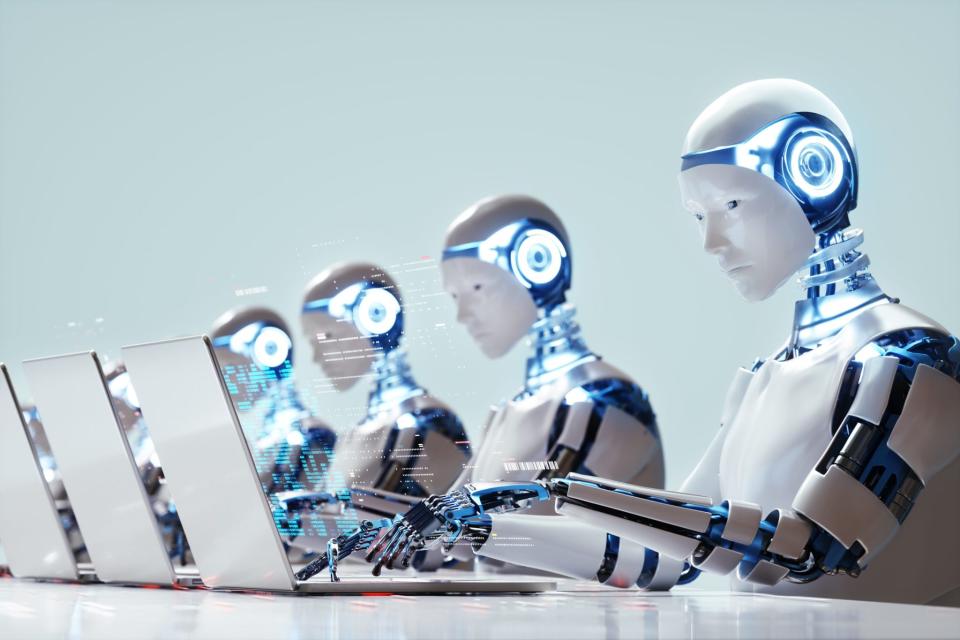25-year-old Anthropic employee says she may only have 3 years left to work because AI will replace her

It’s not just entry-level workers who have never experienced a tech boom that are fearing their looming replacement thanks to AI—now even c-suite executives in the know are predicting their demise.
Avital Balwit, the chief of staff at Anthropic, one of AI’s hottest startups, has joined the growing list of senior tech professionals to weigh into our existential crisis since Geoffrey Hinton, the "Godfather of AI," decided he had to “blow the whistle” on the technology he helped develop.
“I am 25. The next three years might be the last few years that I work,” the Gen Zer wrote in a personal essay in Palladium. “I am not ill, nor am I becoming a stay-at-home mom, nor have I been so financially fortunate to be on the brink of voluntary retirement.”
Instead, working at the Google and Amazon-backed $18 billion+ AI firm has cemented her belief about the future: Her job, along with most others, is destined for obsolescence—and anyone who thinks otherwise is in denial.
“I stand at the edge of a technological development that seems likely, should it arrive, to end employment as I know it,” Balwit explained.
“The general reaction to language models among knowledge workers is one of denial,” she wrote, adding that although there are some tasks that AI can’t yet do, like coding long sequences, it’s set to improve at pace.
“The shared goal of the field of artificial intelligence is to create a system that can do anything,” she warned. “I expect us to reach it soon.”
Anything that a remote worker can do, AI will do better
Research shows that the world of work is in for some serious upheaval.
The investment bank Goldman Sachs estimated that AI could replace the equivalent of 300 million full-time jobs globally in the coming years.
In the U.K., the government is preparing for a scenario in which advances in automation will lead to increased unemployment and poverty by 2030.
Meanwhile, a McKinsey study has warned that AI could force nearly 12 million US workers to switch jobs by 2030—with admin, manufacturing and sales workers among those most likely to be impacted.
“Given the current trajectory of the technology, I expect AI to first excel at any kind of online work,” Balwit echoes. “Essentially anything that a remote worker can do, AI will do better.”
The jobs that AI will kill first? Copywriting, tax preparation, customer service, software development and contract law.
“Generally, tasks that involve reading, analyzing, and synthesizing information, and then generating content based on it, seem ripe for replacement by language models,” Balwit warns.
Even if everyone is ultimately destined for unemployment, she predicts that those who have ditced corporate careers and become tradies can expect to enjoy labour participation for “much longer than five more years”.
“Regulated industries like medicine or the civil service will have human involvement for longer, but even there, I expect an increasingly small number of human workers who are increasingly supplemented with AI systems working alongside them,” Balwit adds.
Mass unemployment could lead to an aristocratic life for all
Balwit’s not the first to predict that AI will eliminate the need to work at all.
“There will come a point where no job is needed,” Elon Musk similarly told Britain’s Prime Minister Rishi Sunak. “You can have a job if you want to have a job, for personal satisfaction, but the AI will be able to do everything.”
Similarly, Balwit paints an optimistic picture of how unemployment could look in years to come—and it’s good news for those who’d love to live like the “ton” in Bridgerton or Downton Abbey’s Crawley family.
“In the early modern era, landed gentry and similar were essentially unemployed,” she says.
Instead of commuting to a desk five days a week, they filled their days with hobbies, balls, and time with their loved ones.
“If we do manage to obtain a world where people have their material needs met but also have no need to work, aristocrats could be a relevant comparison,” Balwit concluded.
Fortune has contacted Balwit for comment.
This story was originally featured on Fortune.com

 Yahoo Finance
Yahoo Finance 